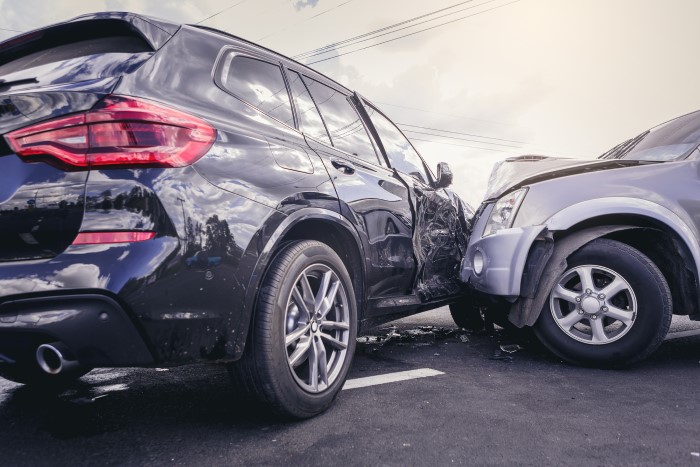
Car accidents are inevitable and could happen to anyone, anytime. Whether it’s someone negligent, wild weather, or just a random car glitch, these moments can really mess with your plans or, worse, your life. They might throw you into a situation you never saw coming.
Based on a report from the World Health Organization, around 1.19 million fatalities occur each year due to road traffic accidents. And it’s not just about the numbers—an additional 20 to 50 million people end up dealing with injuries, and many of them face life-altering disabilities.
If you’ve been involved in a car accident, your initial reactions may be a mix of shock, confusion, and concern. That’s a tough situation, and one thing that becomes critical in the aftermath of the accident is deciding whether to negotiate a settlement or pursue litigation. This decision hinges on various factors, and understanding these factors can help you make a sound choice that aligns with your interests. Let’s break down the considerations for both scenarios:
When to negotiate
Settlement is about finding common ground and hammering out an agreement through negotiation. This process involves parties coming to the table, often with legal representation, to hash out the details of the incident without resorting to litigation. That said, a car accident lawyer Marietta Ga firm or one of the reputable law professionals in your area, can be your best ally in this complex process.
Here are factors to consider when deciding if settlement negotiations are the right path forward after an accident:
- Clear liability: You know how people often argue about who’s to blame in a car accident? Well, if the responsibility for the accident is crystal clear, negotiating can be a quicker and less stressful way to settle matters. When both parties agree on who’s at fault, it streamlines the process and can lead to a faster resolution.
- Minor injuries or damage: In cases where injuries are minor or vehicle damage is relatively low, opting for negotiation may be more practical. It often saves time and legal expenses compared to pursuing a court case for smaller claims. After all, legal fees, court costs, expert testimony, and more can really add up! That means the compensation you might receive may not outweigh these costs for minor incidents.
- Faster resolution: Sometimes, car accident victims want to settle just to find closure quicker. This is especially true if there’s only minor car damage or financial effects from the collision. With that said, negotiations pave the way for a quicker resolution. If you need compensation promptly for vehicle repairs or medical bills, avoiding the lengthy court process may be in your best interest. Fast settlement can also offer peace of mind for both parties.
- Privacy: Unlike court proceedings, negotiations can be kept private. This confidentiality shields sensitive information from becoming public knowledge, providing a level of privacy that’s often not afforded in a courtroom setting. If you wish to handle the matter more privately, negotiating becomes an appealing option.
- Preservation of relationships: If the accident involves friends, family, or coworkers, choosing negotiation over litigation might help preserve relationships. Going to court can strain personal and professional ties, making it harder to maintain a positive connection moving forward. Of course, it’s still dependent on the circumstances and the willingness of both parties to find common ground. Yet, opting for a peace settlement often provides a less confrontational and more cooperative environment.
These are just a few key reasons why negotiation tends to be the most prudent path after car accidents in many cases. As reported by the Insurance Information Institute, car accident victims may receive an average of over USD$20,000 for injuries, with an additional almost USD$5,000 covering property damage. While these figures offer a general overview, the actual amounts can vary significantly based on the specific circumstances surrounding the accident.
Now you’ve learned about when to negotiate in a car accident, let’s tackle why you might consider bringing your case to court.
When to go to court
Although negotiation provides a prompt and less stressful resolution, there are instances where litigation becomes the necessary course for car accident victims. Here are they:
- Disputed liability: This situation refers to a dispute over who’s at fault for the accident when a resolution can’t be reached through negotiation. In this case, the court process serves as a formal and structured platform for weighing the evidence presented by both parties. It aims to provide an impartial judgment on the responsible party, helping to bring clarity to complex situations where negligence is contested.
- Severe injuries or long-term consequences: Severe injuries often lead to a diminished quality of life and a potential loss of earning capacity. And we’re talking long term problems here messing with your career—not just a few trips to the doctor and some physical therapy. That means more medical issues, less ability to enjoy hobbies, and pain flaring up to disrupt plans. Not fun to think about. If this describes your situation, going to court may be a means to secure compensation for economic damages.
- Insurance disputes: Pursuing car insurance claim compensation should be straightforward: file paperwork, provide supporting documents, and accept a fair settlement offer. That should be the ideal scenario. However, if the other party’s insurers deny your claim outright or offer unreasonably low compensation, even with strong evidence proving your innocence, the need for legal intervention becomes apparent. Courts can help resolve conflicts related to coverage, policy limits, and the extent of compensation.
- Bad faith: You know bad faith when you see it, such as a lack of transparency where the insurance company fails to provide clear explanations for their actions or decisions. When faced with such unfair practices, taking the matter to court can help hold them accountable. Going to court enables a more thorough examination of the insurer’s behavior, allowing you to present evidence of bad faith practices.
- Complex cases: Some accidents involve complex legal issues, such as multiple parties, shared liability, or intricate details. In such cases, the legal system may be better equipped to handle the complexity of the situation.
Most car accident victims want a smooth, fast, and stress-free resolution to cases through fair out-of-court settlements. However, for justice to truly get served, the legal system provides the best recourse option when negotiations fail.
Conclusion
Being involved in a road collision, no doubt, leaves most people overwhelmed, even traumatized. Making major decisions between settlement negotiations or lawsuits adds further uncertainty and stress to an already difficult situation. That’s why hiring a personal injury attorney proves so valuable. Your legal counselor carefully weighs unique case factors, evidence, and life impacts when advising on beneficial next moves. Their only goal is to give you the support and guidance needed to help you navigate the complexities of the legal system.







